The Charities Bill received Royal Assent and passed into law as the Charities Act 2022 (the Act) on 24 February 2022. The primary purpose of the Act is to reduce the administrative burden on charities through the implementation of the recommendations made by the Law Commission in its report of 2017. The provisions of the Act are due to be implemented in a phased way, over a period of 18 months, which will give the Charity Commission sufficient time to update its guidance. A key point to note is that the Act does not impose any additional obligations on charity trustees. Instead, it simplifies the administrative steps which trustees are required to take when making certain decisions. The following are some of the key provisions of the Act.
Amending governing documents and changing charitable purposes
Trustees may wish to make minor amendments to their charitable purposes, to respond to emerging need, or to make changes to their governing documents to reflect modern governance arrangements. Under existing legislation, the process by which these changes had to be made was often complex and dependent upon the legal form of the charity. The Act has made it easier for trustees to make such changes and aligned the process for the different types of charity. The main provisions of the Act are:
- Unincorporated charities which had no power or limited powers in their governing documents to amend their charitable purposes or update their constitution were previously required to seek permission from the charity commission to implement such changes. The Act provides trustees with the power to make changes by resolution. Certain changes such as significant changes to the charity’s objects, dissolution clauses or trustee benefit provisions (“regulated alterations”) will, however, still require consent from the charity commission.
- Royal Charter charities, which did not have express power of amendment, were previously required to undertake a time consuming and complex process to amend their governing documents. Under the Act, they will have the power to make amendments with the permission of the privy council.
- Charitable companies will be able to make minor changes to their charitable purposes without the need to obtain charity commission consent, which brings them into line with Charitable Incorporated Organisations. Significant changes to a charity’s objects will continue to be a “regulated alteration” requiring charity commission consent.
Fundraising Appeals
The Act has set out clear rules on how to deal with appeal income when the amount received is insufficient to fund the purpose of the appeal (a “failed appeal”) or where the appeal income exceeds the amount required to fund the purpose of the appeal. In these cases, the unused appeal income can be applied for a similar purpose provided one of the following conditions can be met:
- The individual donations are less than £120
- The donor cannot be located or identified
- It would be unreasonable to return the donation or for the donor to expect a refund
These new rules should reduce the occasions when charities have to apply to the charity commission for permission to apply such funds for a similar purpose. This will be particularly helpful given the methods of modern fundraising, where donor identification can be more complex.
Permanent Endowments
A permanent endowment is a fund held by a charity where the original capital amount received must be retained and only the income arising from investing this capital sum can be spent. Charities are often in a position where the income arising on permanent endowments is too small to serve a useful purpose and the most effective use of the capital fund would be to spend it on charitable purposes. The existing legislation permitted permanent endowments to be spent, without charity commission consent, where the fund did not exceed £10,000 and the income did not exceed £1,000. The Act has amended this rule, increasing the fund value threshold to £25,000 but removing the income threshold.
The Act has also introduced a provision whereby up to 20% of a permanent endowment fund’s balance may be borrowed, without permission from the charity commission, provided a plan is in place whereby it is repaid within 20 years.
Ex-Gratia Payments
An ex-gratia payment is where a charity wishes to make a payment which it has no legal basis to make. In other words, it is not a contractual liability, and it is not a payment furthering its charitable objectives. An example would be to honour an intended gift in a will even though the gift had technically failed. Under existing legislation, the consent of the charity commission was required for any such payment. The Act has introduced a provision whereby small ex-gratia payments may be made without charity commission consent. The thresholds are:
| Charity Income | Maximum Ex-Gratia Amount |
| Up to £25,000 | £1,000 |
| £25,000 to £1,000,000 | £2,500 |
| > £1,000,000 | £20,000 |
In order to make an ex-gratia payment, the Act requires that Trustees must be able to demonstrate that they could reasonably be regarded as being under a moral obligation to make the payment. The Act permits the decision to be delegated to charity staff.
Disposals of Charity Property
Under existing legislation, prior to selling a property, charities were required to obtain professional advice from a RICS qualified surveyor who would issue a detailed report confirming that the charity had appropriately advertised the property and had achieved the best available price. Under the Act:
- the category of those who can advise the charity on the sale of a property has been expanded to include “designated advisors” such as members of the national association of estate agents. Furthermore, a designated advisor can include a member of the charity’s own staff where they have the necessary qualifications.
- The rules relating to advertising the sale of the property, which previously had to meet detailed requirements as set out in the qualified surveyor’s report, have now been removed.
- The detail in the advisor’s report can now be proportionate to the size and nature of the property being sold.
Transactions with Trustees
Under existing legislation, charities already had the power to remunerate trustees for services provided, without permission from the charity commission. An example would be paying a trustee, who was a solicitor, for legal advice. Under the Act, this power is extended to remunerating trustees for the provision of goods. An example would be paying a trustee, who was a building contractor, for building materials. The charity must be able to demonstrate that it is in the best interests of the charity, for example because the goods are being purchased at a significant discount.
Legacies to charities which have merged or incorporated
Under existing law, charities which incorporated, or which merged with other charities were at risk of losing legacies which were left to the original charity. As a result, it was common practice to leave the existing charity in existence, as a “shell charity”, so that it could receive any future legacies. Under the Act, charities which have incorporated or merged will automatically be entitled to receive legacies left to the original charity.
Get in touch or request a call back:
Call 0330 223 6400 or complete the form to make an enquiry or request a call back (* indicates a mandatory field).



